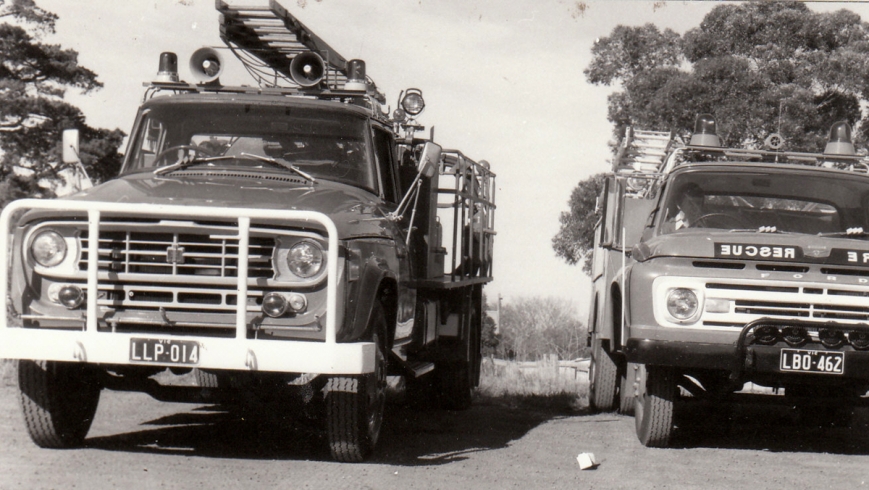The Epping Bush Fire Brigade was formed against the backdrop of World War II in March 1944 by a group of proactive local farmers in an old tin shed in Houston Street, Epping. A lot has changed since those humble beginnings.
Back then, the area was sparsely populated and considered rural. And the shed housed little more than a modest Austin tanker equipped with beaters and knapsacks. It helped the brigade fight fires as far away as Plenty Road, Bundoora, and Mahoneys Road in Thomastown.
Dedicated members began storing fire-fighting equipment on their own properties to ensure they could mount an early attack on local fires.
The brigade underwent considerable expansion throughout the 1970s when it took possession of a big tanker to tackle structural fires and later a rescue vehicle bought after local fund-raising efforts.
The brigade was later renamed the Epping Rural Fire Brigade. In the late 1980s it became the Epping Urban Fire Brigade, reflecting the suburb’s increasing population. Now it’s known as the Epping Country Fire Authority and is housed on the corner of O’Herns and Epping roads.
Over the years, the brigade has been involved in some of Australia and Victoria’s most horrific natural disasters, including the Ash Wednesday bushfires of 1983, floods in Macedon and Woodend in 1993 and, more recently, the 2009 Black Saturday fires.
The brigade celebrated its 70th anniversary on March 29 with a gathering of past and present members, local dignitaries, including state and federal MPs, and guests from CFA headquarters.
Captain Robert Saitta spoke about the brigade’s colourful history, recounting stories from ‘legends’, including those of the brigade’s first captain, Cliff Smith.
Mr Smith’s daughter, Eleanor Sumner, also recounted her own memories of the “Bush Brigade” days and the important role she and her sisters played in keeping the brigade members’ knapsacks full of water.
Captain Saitta said the brigade had come a long way since 1944. “If the next 70 years are just like the last, the brigade and the community will forge ahead.”







